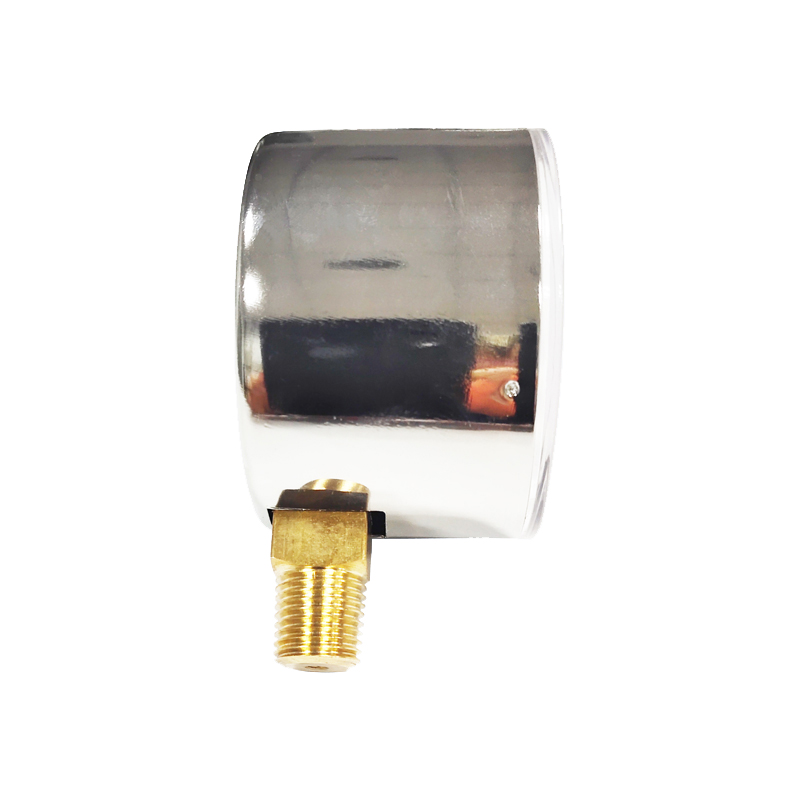
Nov . 09, 2024 19:51 Back to list
Types of Differential Pressure Gauges and Their Applications in Various Industries
Understanding Differential Pressure Gauge Types A Comprehensive Guide
Differential pressure gauges are essential instruments used in various industries to measure the difference in pressure between two points in a system. These devices play a crucial role in monitoring and controlling processes that require precise pressure measurements. Understanding the types of differential pressure gauges available can help engineers and technicians select the appropriate one for their specific applications. Here, we will explore the common types of differential pressure gauges, their working principles, applications, and key considerations when choosing one.
Types of Differential Pressure Gauges
1. Mechanical Differential Pressure Gauges Mechanical differential pressure gauges operate based on the movement of a diaphragm or a spring element that reacts to pressure changes. The gauge indicates the pressure difference by the movement of a pointer along a calibrated scale. These gauges are robust, cost-effective, and suitable for applications where moderate precision is acceptable. They are commonly used in HVAC systems, filtration, and fluid flow monitoring.
2. Electronic Differential Pressure Gauges Electronic differential pressure gauges utilize electronic sensors to measure the pressure difference between two points. These gauges often come with digital displays and provide high accuracy and sensitivity. They can output signals in various formats, such as 4-20 mA, which are suitable for integration with control systems. Electronic gauges are widely used in laboratory environments, cleanrooms, and industrial processes where precise measurements are critical.
3. Capacitive Differential Pressure Gauges Capacitive differential pressure gauges use capacitive sensors to measure pressure difference. They operate by determining the change in capacitance caused by diaphragm displacement in response to pressure variations. These gauges are known for their high accuracy and stability, making them suitable for applications that involve low differential pressures.
4. Micro-electromechanical Systems (MEMS) Differential Pressure Sensors MEMS differential pressure sensors are compact, highly sensitive devices that utilize microfabrication technologies. They feature tiny mechanical structures that deflect under pressure changes, with the deflection detected and converted into an electrical signal. MEMS sensors are ideal for applications where space is limited and high performance is essential, such as in automotive and aerospace industries.
Applications of Differential Pressure Gauges
Differential pressure gauges find applications in a wide range of industries, including
differential pressure gauge type

- Oil and Gas Monitoring pressure differentials in pipelines and refining processes to ensure safety and efficiency. - Water and Wastewater Treatment Keeping track of pressure drops across filters and membrane systems to optimize operation and maintenance schedules. - Pharmaceuticals Ensuring the proper functioning of cleanroom environments by monitoring pressure relationships across barriers. - HVAC Systems Measuring pressure differences across air filters and ducts to maintain efficient air flow.
Key Considerations When Choosing a Differential Pressure Gauge
1. Pressure Range The selected gauge should have a range that suits the application requirements. It is essential to consider both the maximum and minimum pressure differentials expected.
2. Accuracy Depending on the application's precision requirements, the accuracy of the gauge should be evaluated. Electronic gauges generally provide higher accuracy than mechanical ones.
3. Environment The operating environment plays a significant role in gauge selection. Factors like temperature, humidity, and the presence of corrosive substances should be considered to ensure gauge longevity and performance.
4. Installation and Maintenance Understanding the installation requirements and the maintenance needed for different gauge types is essential to ensure long-term reliability.
5. Output Requirements For integration with existing control systems, it is important to select gauges that provide the necessary output signals, like analog or digital.
Conclusion
Differential pressure gauges are vital instruments in many industrial processes, providing critical data for operational efficiency and safety. By understanding the different types of differential pressure gauges and their applications, professionals can make informed decisions that enhance productivity and reliability in their operations. Whether opting for mechanical, electronic, capacitive, or MEMS technology, choosing the right gauge is key to achieving accurate and reliable pressure measurements.
-
High-Precision 5 Valve Manifold Differential Pressure Gauge Suppliers
NewsApr.29,2025
-
High-Precision Diaphragm Vacuum Pressure Gauges Manufacturers & Quotes
NewsApr.29,2025
-
Omega Differential Pressure Gauges High Accuracy & Durability
NewsApr.28,2025
-
Low Pressure Differential Pressure Gauges Precision Solutions & Quotes
NewsApr.28,2025
-
Digital Diaphragm Pressure Gaauge Precision Measurement & OEM Quotes
NewsApr.28,2025
-
Differential Pressure Gauge China Price High-Accuracy & Best Quotes
NewsApr.28,2025
